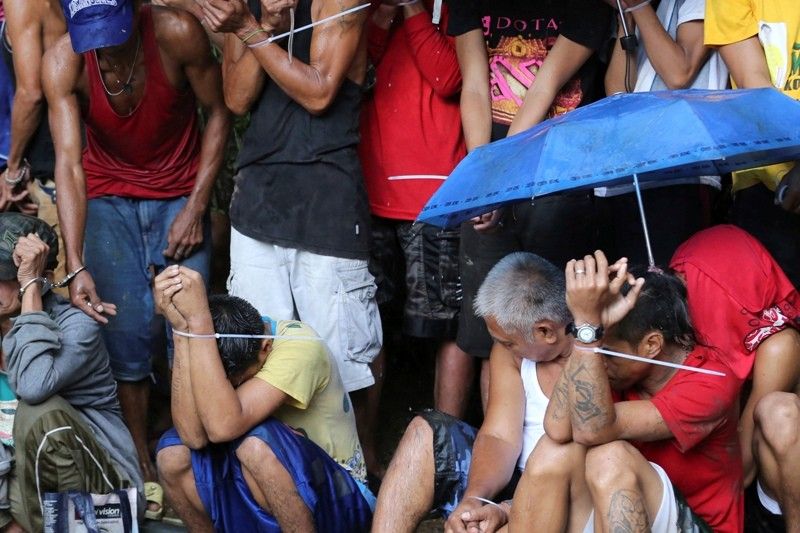Amnesty: Paid killers, cops behind some drug-related deaths

MANILA, Philippines — Many instances of drug-related killings by unknown armed persons directly involved the police, human rights watchdog Amnesty International said in a new report.
The international watchdog reported that police personnel have killed drug suspects themselves or through paid killers.
Amnesty International interviewed a man and a woman regularly paid to kill drug offenders on behalf of an active-duty police officer.
"Since President Duterte took office, the paid killers said the demand for their work is 'rampant,' averaging three to four 'orders' per week," the report read.
The male paid killer said that they are usually given an order through an envelope containing the person's name, a picture, the address and what the person likes to do.
The paid killer then watches the target before carrying out a riding-in-tandem hit-and-run.
"The rate depends. For a user, it’s P5,000 (US $100). For a pusher, P10,000 to P15,000 pesos. It depends by the person. Usually we don’t have multiple targets per project, but [when we do], we’re paid per head," the woman interviewed said.
The paid killers are also ordered to plant "evidence" to link the person to drugs.
"Sometimes we’re provided the drugs—shabu—we’re going to plant. There was an instance when the target was crossing the street, and when the target was taken down, we just threw drugs [towards] the body," the man told Amnesty International.
Tampering with evidence and falsifying reports are common practices among the police, according to a police officer with an anti-illegal drugs unit in Metro Manila who agreed to be interviewed by Amnesty.
The police officer told Amnesty International that "sometimes police misstate" what happened in their incident reports.
"The officer said the practice of planting evidence began before the Duterte administration and stems from the perceived slowness and inefficiency of the judicial system: 'If you get unlucky because there’s not enough evidence, the case is weak [and] you will even be dismissed from your job, and that person will go back to pushing [drugs].'" the report read.
Around 7.000 people have died since the government began it's war on drugs, with around 2,500 killed in legitimate police operations. The majority of the drug-related deaths have been blamed on assassins, vigilantes and on drug syndicates themselves.
'Under-the-table' payments
But under-the-table payments when police shoot alleged drug offenders have also encouraged widespread killings, the police officer with an anti-illegal drugs unit said in the report.
The police are paid by "encounter" which ranges from P8,000 to P15,000 depending on the categories of pushers and their notoriety.
"The PNP incentive isn’t announced. … We’re paid in cash, secretly, by headquarters. The payment is [split by] the unit. … There’s no incentive for arresting. We’re not paid anything," the police informant said.
Aside from the under-the-table payment, some local governments in Metro Manila provide additional benefits for the so-called encounters.
"The size and, according to the police officer, regularity of the under-the-table payments for 'encounters' suggest knowledge or other complicity even higher within the police hierarchy, which could indicate that these attacks on alleged drug offenders are systematic," Amnesty said.
Earlier this week, Philippine National Police Director General Ronald "Bato" Dela Rosa dissolved the police Anti-Illegal Drugs Group following the death of Korean businessman Jee Ick-joo at the hands of rogue cops.
Dela Rosa suspended the war on drugs to prioritize the "internal cleansing" of the police force which he dubbed as the "war on scalawags."
- Latest
- Trending




























